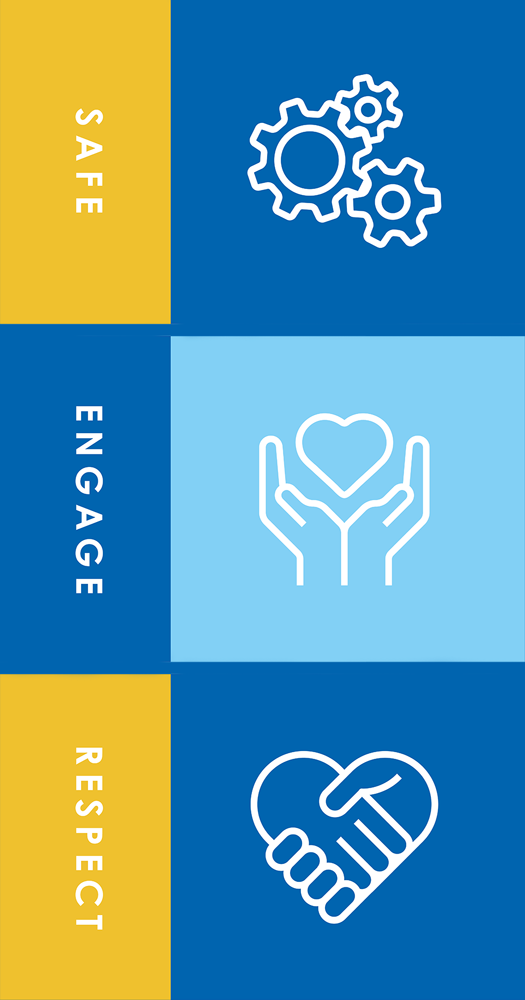What is mental health?
We all have mental health, just as we all have physical health. Being mentally healthy means that we feel good about ourselves, make and keep positive relationships with others and can feel and manage the full range of emotions. These can range from happiness, excitement and curiosity through to less comfortable feelings such as anger, fear or sadness. Good mental health allows us to cope with life’s ups and downs, to feel in control of our lives and to ask for help from others when we need support.
Mental health spectrum
Mental health and mental illness are part of a ‘spectrum’ just as physical health and illness are. Throughout our lives, many different things can lead us to move up and down the spectrum such as the start or end of relationships, getting a new job or being made redundant, changes in physical health and good news or worries about those we are close to. It is important to remember that recovery is possible, even from severe mental ill health, and that people with a mental ill- health diagnosis may be managing their condition well and still experiencing high levels of wellbeing.
Top Tips for how you can support your child’s mental health
Day to day …
Our everyday habits are important to our mental health, just as they are to our physical health. Here are a few suggestions to help your child develop good habits.
Are there things you can encourage them to do, or do together, each day?
Talk openly about mental health
Just as you might encourage them to eat fruit and veg to keep their bodies healthy (and model this behaviour yourself), talk openly about, for example, staying connected with others or being physically active in order to take care of our minds.
Model good habits
Children often learn from copying what they see around them. If you are taking care of your own mental health, it’s easier for them to see what good habits look like.
Think about phone usage – both theirs and yours
We don’t fully understand the impact of social media on our mental health but using phones and laptops can impact on our sleep, which is important to our mental health.
We’re also more likely to listen to one another if we’re not distracted by technology.
Notice any changes in your child’s behaviour
Young people tell us how they’re feeling in many ways, not always verbally. Learning what is normal for your child makes it easier to notice when things change, and if this might be a sign that they’re struggling.
When times get tough . . .
Sometimes you might worry about your child’s mental health. Whilst you might need to speak to a member of school staff or your GP for advice, here are a few things you can do if you’re worried.
Let your child know that you’re concerned
Explain why you feel that way, e.g. if you’ve noticed they haven’t been interested in activities they usually enjoy.
Use activities that you do together to have conversations about how they are doing
Talking whilst doing something together, side- by-side, such as cooking, can help them share their feelings more easily than a face-to-face conversation.
Let them know that struggling sometimes is normal and nothing to be ashamed of
Tell them about the mental health spectrum and that we all, including you, go up and down the scale throughout our lives. Reassure them that talking about difficult feelings with the people we trust is a brave thing to do.
Listen and empathise
Often the first step to feeling better is feeling connected and knowing that someone is alongside you. Empathy helps young people (and adults) connect. Empathy involves acknowledging what your child is feeling, trying to understand things from their point of view and avoiding judgement. Empathy is usually more helpful than giving advice or trying to ‘fix’ their problem.
If you’re still worried
Talk to a trusted member of school staff or your GP who can point you towards sources of help.
Find out more :
Use the resources below to find out more about mental health and wellbeing:







